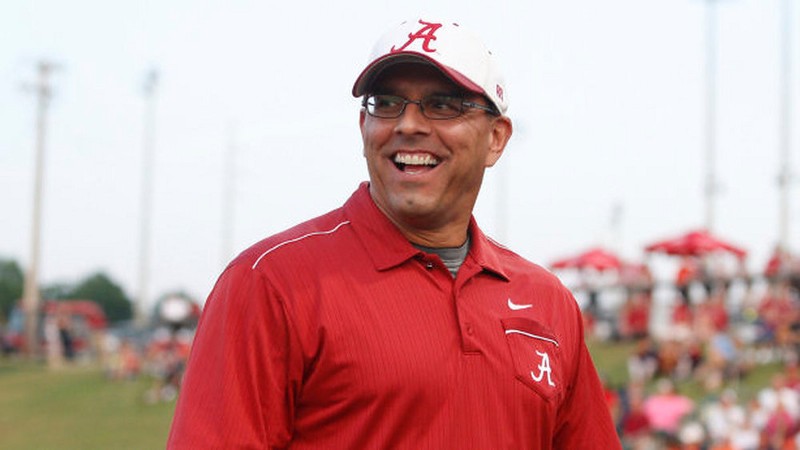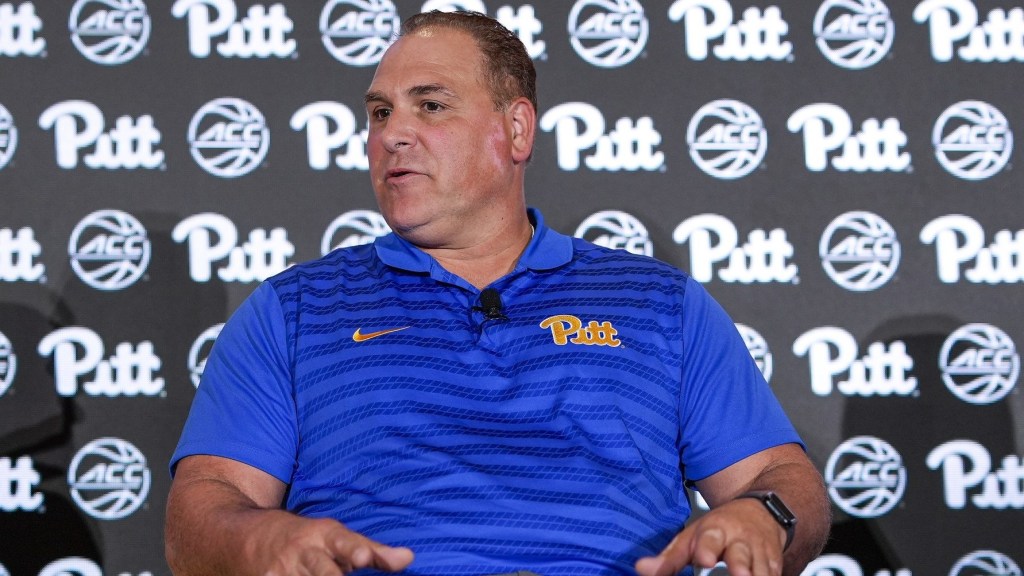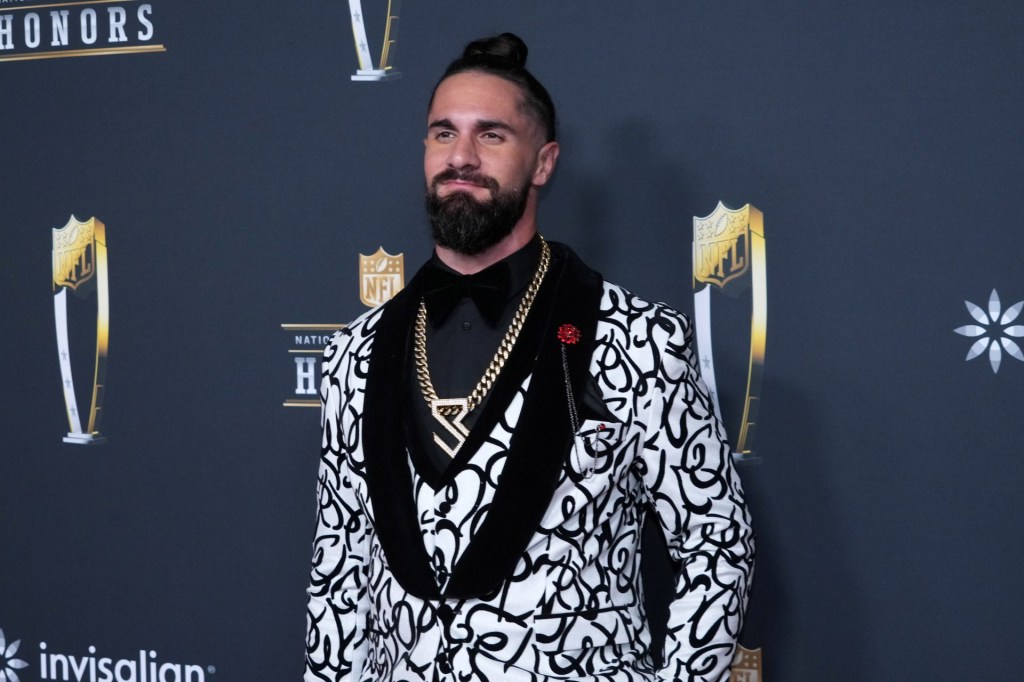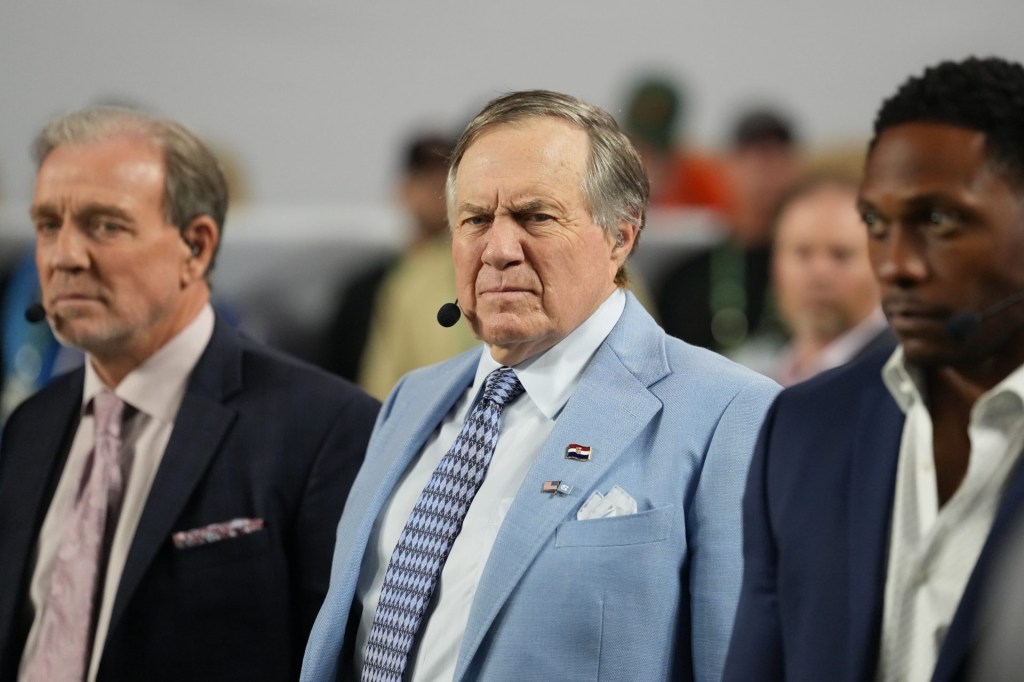By: Chase McCaskill, @itsmechase

Front Office Sports proudly had the opportunity to sit down with Patrick Murphy, Head Coach of the Alabama Crimson Tide Women’s Softball Team. Coach Murphy’s career has seen him go from his undergrad at Northern Iowa, down to the bayou at Louisiana Lafayette where he was an assistant coach, and finally to the University of Alabama. Coach Murphy has been with the Crimson Tide since the genesis of the softball program, which he took over not shortly after it began. Under his leadership, Alabama has won a National Championship (2012), enjoyed 10 WCWS appearances, conquered the SEC a total of five times, and had 17 straight NCAA Tournament births: quite the accomplishment! Coach Murphy was kind enough to share with us some of the secrets to his success. After speaking to him, it’s easy to see why his teams are so successful!
You’ve been with Alabama Softball since its inception, can you talk a little about your journey?
Well, I graduated from Northern Iowa in 1988. I went to grad school at Southwestern Louisiana, which is now Louisiana Lafayette. I was getting my masters degree, going to school, writing my thesis, and working as a GA in sports information office. One night the head softball coach took me to dinner and asked me if I’d like another duty. The softball assistant-coaching job had come open and she found out I had coached high school baseball in Iowa and offered me the job. The job was part-time with no benefits. I didn’t even have a car…. But, for the next five years I was an assistant softball coach at Lafayette, had a wonderful experience, and then at the end of those five years, the SEC was beginning to form.
I applied everywhere but didn’t get a job. Northwest Missouri State came open in the middle of the fall semester. I knew some of the kids on the team because they were from Iowa. I got the job as an interim head coach and spent one spring there. The next job I applied for was Alabama and I got the assistant job. I was the assistant there for two years and in the third year I got the head-coaching job. I was in the right place at the right time. It’s been incredible to see it grow. We played in a city park during my first three years and finally got our on-campus stadium in my second year as a head coach, which ended up being the first time we went to the College World Series. Getting our on-campus facility really solidified our program.
You reside over one, if not the, most successful softball programs in the country. What is the key to your success? What is the attribute you possess that’s driven this program?
I think continuity in the coaching staff. My associate head coach, Alyson Habetz, has been with me since Day 1 and my pitching coach, Stephanie VanBrakle, is a young lady that pitched for us for four years. That familiarity of the program is just tremendous. The biggest thing though is finding the right fit in terms of the student athlete. They have to fit with my philosophy and the program’s philosophy.
We have a number young ladies on the team this year and they all possess some of the same qualities. Now, they all have different personalities, but the human qualities are the same. We’ve just been very fortunate to have that type of kid in our program from Day 1.
Many people decide in college they want to be a collegiate coach. What advice would you give a student who may not be getting a degree in sports management, but still wants to get into coaching?
It does not matter at all. I was an undergrad history education major with a journalism minor and a masters in mass communications with an advertising emphasis. So, it doesn’t matter what your major is. What does matter is that you have a passion for coaching. If you do, you can find a way in. Now-a-days, a lot of kids that leave college think they’re going to get the job that is going to pay $100k and they’re going to be at the top of the ladder, but that isn’t the case. You’ve got to be able to start at the bottom and work your way up. You need to be very, very loyal to whomever you work alongside. Picture this: if I’m a young person looking for a job, the first thing I would say to my potential head coach is that my job is to make you [the head coach] look good. That’s what I would want to do.
When you do that, and you’re loyal to the head coach, the sky is the limit because if you do a good job, that head coach is going to talk about you to lots of other head coaches and administrators. Your name is then seen in a very good light amongst the network of coaches. My first coaching job out of college was coaching little league softball. I always thought I’d be the next Bobby Knight to tell you the truth. I loved college basketball and really thought I was going to coach basketball, but things happened and I ended up in softball.
People always talk about the network on the business side of sports, but would you attest that the network is just as strong on the sporting side of athletics?
Oh, absolutely. What really impresses me about young people now is they’ll write to me and say, how do I get started? Or, for example, a guy who has been in baseball for a bit and reaches out to ask how to get from baseball to softball? That just impresses me so much when a kid, especially in college, will reach out to me and ask ‘What should my path be?
My volunteer coach from three years ago did something similar. Adam Arbour was the softball manager at Michigan and wrote to me out of the blue asking to be considered for a job if any opportunities ever came along. We started emailing back and forth and he ended up being the volunteer assistant when we won the National Championship in 2012. It just takes a little bit of effort. You know, most people have a good intention to reach out.
Very few people, however, actually follow through. A lot of people have really good thoughts but very rarely does the kid follow through. If you can be the person who follows through, you can get any job you want because it is a rare quality.
You’ve been in the same place since 1996 and have maintained consistent success. How have you battled complacency in your own career and what encouragement would you give to anyone who has been in the same position for a long period of time?
Anyone who is an educational setting knows each year is different. With any athletic department job or coaching job, you have a new group coming in every year. You get excited when someone commits, and now with everyone committing really early in the sport of softball, you have to wait a long time for a kid to get here. When a kid commits and you know she’ll be a great fit, you can’t wait for them to get here.
It recharges your batteries basically every time a kid commits. That excitement in waiting for them to get to Alabama helps carry you through. It energizes you. That’s what is so fun about college coaching, you only get them for four years, but that anticipation of them finally getting to campus makes it really worth the wait when they finally do arrive.
How have you been able to maintain a work/life balance in your career?
A really good friend of mine, Tim Elmore, who’s just an incredible resource of information, always says ‘You can do anything, but you can’t do everything.’ I’ve learned to say no, which has been the hardest thing in my career to do. I never want to disappoint anybody and I never want to let anyone down. I always want to spread the gospel of Alabama softball to anyone and everyone that asks. But probably in the last three or four years I’ve tried to learn to say no.
I was talking to a buddy of mine, a younger coach, who is go, go, go, go, nonstop kind of person for 12 months. I said to him you’re going to have to learn to say no or you’re going to run out of energy. You don’t want to get burned out because then you’re going to quit. You’ve got to take some time away, just like an athlete who’s got to take time away too. I think it’s important for a young coach, you’ve got to be able to say no. You can’t do everything all the time.
In dealing with sports teams, there’s bound to have been some conflict at some point within the group. How have you dealt with conflict within your own team and how would you encourage others to handle conflict in their own workplace?
One of the things we’ve used for years is the saying ‘Honesty for Greatness.’ I say from the very, very beginning at the first team meeting, the sooner you learn that it’s not all about you, the better off in life you’re going to be. It’s not all about you anymore. You’re on a team, there are 18–20 young ladies and we’re all here for the same reason. It’s a difficult transition because when they were recruited everybody told them it was all about them.
But, when you get to campus, you’ve got to surrender your ego for the good of the team. There have been some difficulties, but I think in the end, when someone graduates and she realizes it was all about the team, she’ll remember the term ‘Honesty for Greatness.’ If it is a true friend or a true coach, they’re going to tell you what you’re doing wrong. And if there is conflict, we’re going to resolve it right away and not let it fester. You’ve got to get to the bottom of it immediately instead of letting it go and go and go because that is when the real problems happen.
At that point it’s a lack of communication problem and no one knows exactly where the problem started. So, address the issue first, the goal is more important than the role, and ‘Honesty for Greatness.’
Have you had any specific mentors in your own career? If so, who?
Definitely my first boss at Louisiana Lafayette, Yvette Girouard, she’s in several Hall of Fames. She is the one that hired me when I was 22 and taught me a work ethic second to none. She worked her butt off to get everything we had at USL. The bottom line: She wouldn’t take no for an answer. Work ethic is huge. She was very loyal, generous, and resilient. She taught me that resiliency, the ability to bounce back, is huge in a young person.
Also, another coach in the conference helped me greatly, Joyce Compton, the former head coach at South Carolina. She’s just another great resource, a Hall of Famer. She was a very, very competitive person, but when the game was over that was it. That was difficult for me because I was this competitive young kid and I didn’t understand that. We’d play South Carolina and afterwards we’d go out to eat with her! She showed me another side, that what happens in the game doesn’t have to go outside the playing field. She was an awesome person to learn from.
With that being said, you’d but a big emphasis on mentorship?
Oh without a doubt. I don’t think enough kids ask! Ask questions of older people, because they will talk to you, they’ll help you out. I really don’t think enough kids ask. Even if you email 20 people, and only 5 respond, you’re up 5 more than when you started.
Parting Wisdom?
Have an attitude of gratitude in everything you do.
We would like to thank Coach Murphy for his time and insight and we wish him the best in his future endeavors!
You can follow him on Twitter here and connect with him on LinkedIn here!






![[Subscription Customers Only] Jun 15, 2025; Seattle, Washington, USA; Botafogo owner John Textor inside the stadium before the match during a group stage match of the 2025 FIFA Club World Cup at Lumen Field.](https://frontofficesports.com/wp-content/uploads/2026/02/USATSI_26465842_168416386_lowres-scaled.jpg?quality=100&w=1024)
![[Subscription Customers Only] Jul 13, 2025; East Rutherford, New Jersey, USA; Chelsea FC midfielder Cole Palmer (10) celebrates winning the final of the 2025 FIFA Club World Cup at MetLife Stadium](https://frontofficesports.com/wp-content/uploads/2026/02/USATSI_26636703-scaled-e1770932227605.jpg?quality=100&w=1024)









